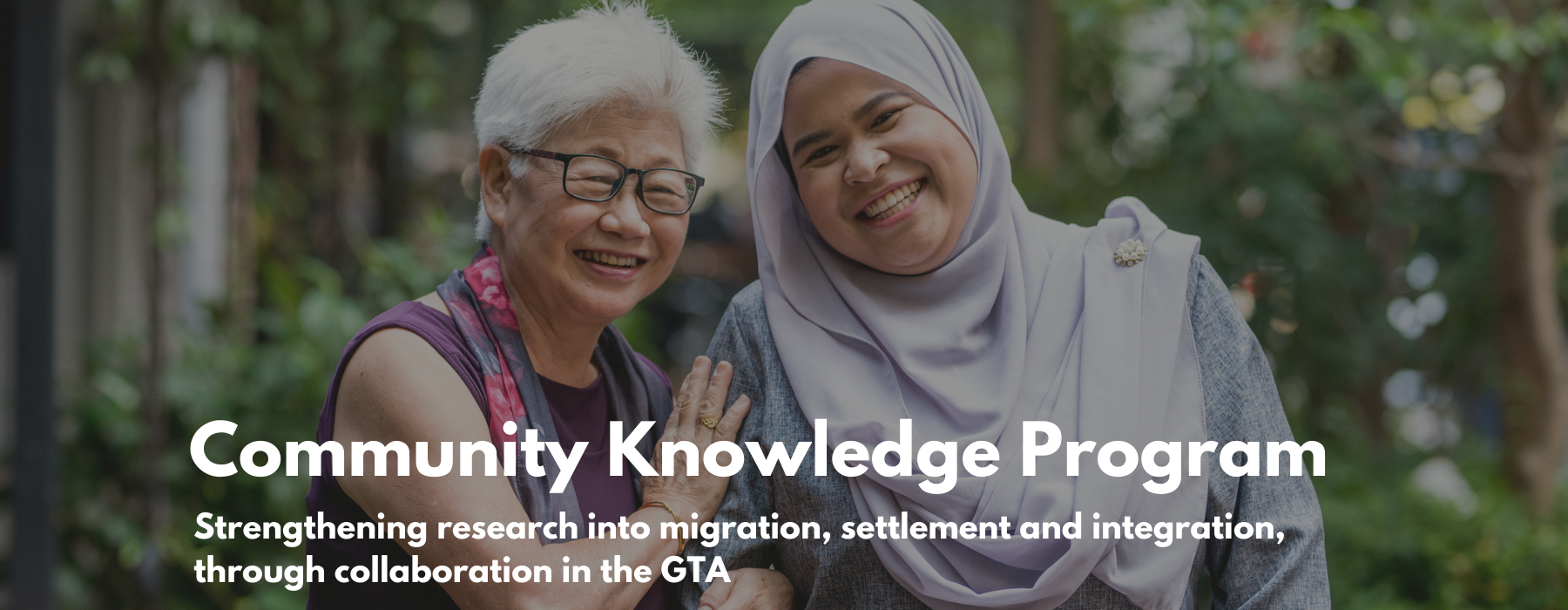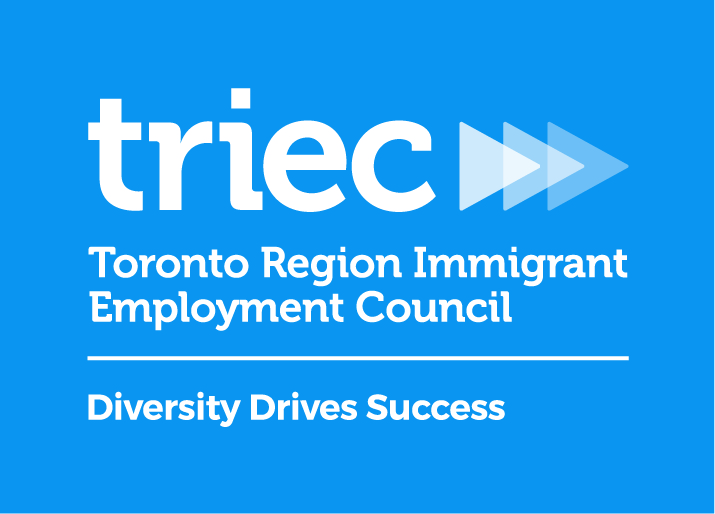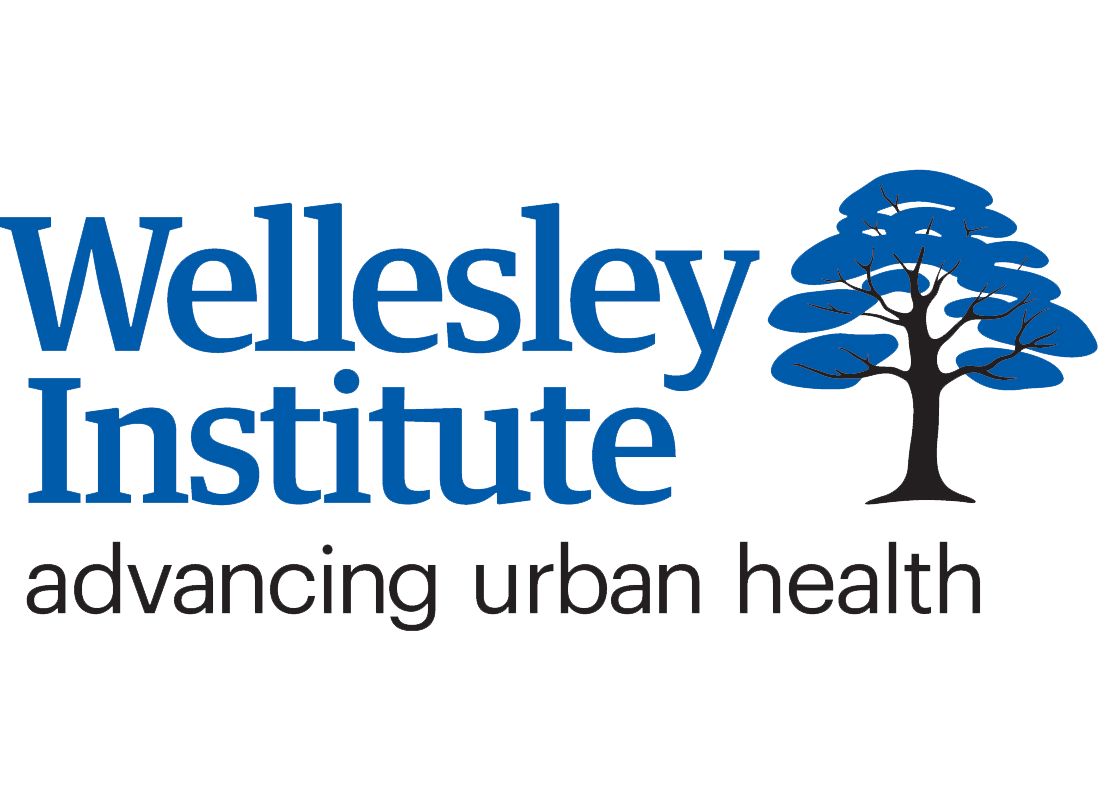
About us
The Community Knowledge Program is an initiative aimed at encouraging collaborative research and knowledge sharing within the immigrant and refugee-serving sector in the Greater Toronto Area.
Originally part of CERIS (the Joint Centre for Excellence for Research on Immigration and Settlement), the Community Knowledge Program is now housed at Wellesley Institute.
The Community Knowledge Program aims to understand the training and resources needed in the immigrant and refugee-serving sector. It is crucial that people who work with newcomer communities understand research and best practices, and use that knowledge to create programs and services that are more responsive and effective.
Our work
In 2021, we conducted a needs assessment to understand the impact of CERIS, the effects of COVID-19 on research and knowledge mobilization, and to see how research in the field at Toronto’s largest universities is influencing policy and front-line settlement programs and services.
This report is the result of collecting, analyzing, and synthesizing qualitative and quantitative data from over 80 people in the sector.
Past Events
Research in Action: Building and Sustaining Research Partnerships, Part 2
Webinar held on March 22, 2024 discusses how those in academia can maintain strong partnerships with community-based groups to improve research in migration and settlement.
Panelists
- Alka Kumar, Mitacs Elevate Postdoctoral Fellow, CERC Migration, Toronto Metropolitan University
- Joelleann Forbes, MSW, Registered Social Worker, Psychotherapist and Researcher
Research in Action: Supporting LGBTQIA+ Newcomers
Webinar held on February 28, 2024 that discusses the unique challenges LGBTQIA+ newcomers face when settling in Canada.
Panelists:
- David J. Kinitz, Stanford University, School of Medicine
- Ranjith Kulatilake, TNG Community Services
Research in Action: Reimagining Settlement Funding
Webinar held on November 6, 2023 that explores how settlement agencies are funded in Canada.
Panelists
- Jennifer Chan, Department of Imaginary Affairs
- Sharma Queiser, Social Planning Toronto
- Alisha Griffith, Unified We Grow
Research in Action: Innovative Approaches to Knowledge Translation
Webinar held on March 29, 2023 that focused on innovative approaches to knowledge translation. From digital communication strategies, photovoice, and community engagement, learn how to share research findings and information in unique ways.
Panelists:
- Marco Campana, Freelance Communications and Digital Strategist for Immigrant and Refugee-Serving Organizations (slides)
- Hajia Abubakar, Community Worker Toronto Centre of Learning and Development
- Marina Morgenshtern, Social Work Researcher and Professor at Trent University
Research in Action: Building and Sustaining Research Partnerships, Part 1
Webinar held on February 8, 2023 that focused on building and maintaining strong partnerships among academia and community-based groups to improve research about migration, settlement, and integration in the GTA.
Panelists:
- Ruth Wilson, PhD candidate University of Toronto
- Paulina Wyrzykowski, Director of Toronto South Local Immigration Partnership
- Sultana Jahangir, Executive Director South Asian Women and Immigrants’ Services
Research in Action: The Effects of Precarious Immigration Status on Health
This event held on November 1, 2022 examined how precarious status is understood as a social determinant of health and how precarious status impacts community health and/or an individual’s access to care.
Panelists:
- Monica Gagnon from the Dalla Lana School of Public Health
- Pinky Paglingayen from The Neighbourhood Organization
- Hussan from Migrant Workers Alliance for Change
Resources:
Research in Action: Misinformation in Newcomer Communities
Newcomer communities must have accurate and reliable health information to reduce the spread of COVID-19, which has caused them disproportionate harm. This event was held on March 16, 2022 and explored tools and strategies for combating the spread of misinformation in newcomer communities in the GTA, and for drawing on the strengths within those communities to share accurate information in culturally sensitive ways. Panelists discussed how settlement and health practitioners can make sure that service seekers have access to information that can improve public health and save lives.
Panelists:
- Dr. Esther Ajiboye, Program Manager, Refugee 613 (Download slides)
- Brannavy Jeyasundaram, Co-executive Director, Toronto Ward Museum (Download slides)
Research in Action: Knowledge Mobilization in the Immigrant and Refugee-Serving Sector
Making research accessible for people without a research background is crucial for front-line workers in the GTA’s immigrant and refugee-serving sector.
This event was held on February 16, 2022 and focused on community-based approaches to mobilizing research and applying it to practice. Panelists discussed migrant resilience, community organizing, peer champions, and why data entry is key to front-line work and presented findings of recent studies.
Panelists:
- Fatima Filippi, Executive Director of Rexdale Women’s Centre (Download slides)
- Nira Elgueta, Project Coordinator for the Gender Based Violence Building Leadership Capacity Project, OCASI (Download slides)
- Rupaleem Bhuyan, Associate Professor, Faculty of Social Work, University of Toronto (Download slides)
Resources:
Download event transcript
Settlement Research: What’s in It for Me?
October 22, 2021 – 2021 Virtual OCASI Professional Development Conference
Our approach
Our community-centred approach aims to increase community capability to create a healthier sector that will achieve better outcomes for the population we serve, newcomers to Canada. We want to involve those who are seldom heard to get a better understanding of the issues that service providers deal with on the ground. To bring stakeholders in the immigrant and refugee-serving together, we will be hosting training in research and knowledge mobilization for front-line workers as well as community panel discussions.
Program goals:
- Understanding needs and capacity for research and knowledge mobilization in the GTA’s immigrant and refugee-serving sector
- Training workers at front-line, community-based settlement agencies on skills in research and knowledge mobilization
- Building and fostering connections among researchers, service providers, policymakers, and other stakeholders in the sector
Access to high-quality research is necessary to the creation of effective policy, service, and advocacy in the immigrant and refugee serving sector.
Resources available to support the development of community-based research and knowledge mobilization skills are often limited. Constraints on staffing, time, and funding, create challenges for some immigrant and refugee-serving agencies to participate in research. Also, much of the academic community is unfamiliar with community-based research capacity and the research it produces.
To bridge this gap, the Community Knowledge Program aims to identify opportunities for collaboration and partnerships between front-line agencies and the academic community, and to encourage stakeholders in the sector to build on each other’s work and knowledge. Collaboration in the sector will improve its practices and contribute to creating systemic change.
Sign up for updates
Contact us
Looking for more information on the Community Knowledge Program? Get in touch with us by filling out the form below.


